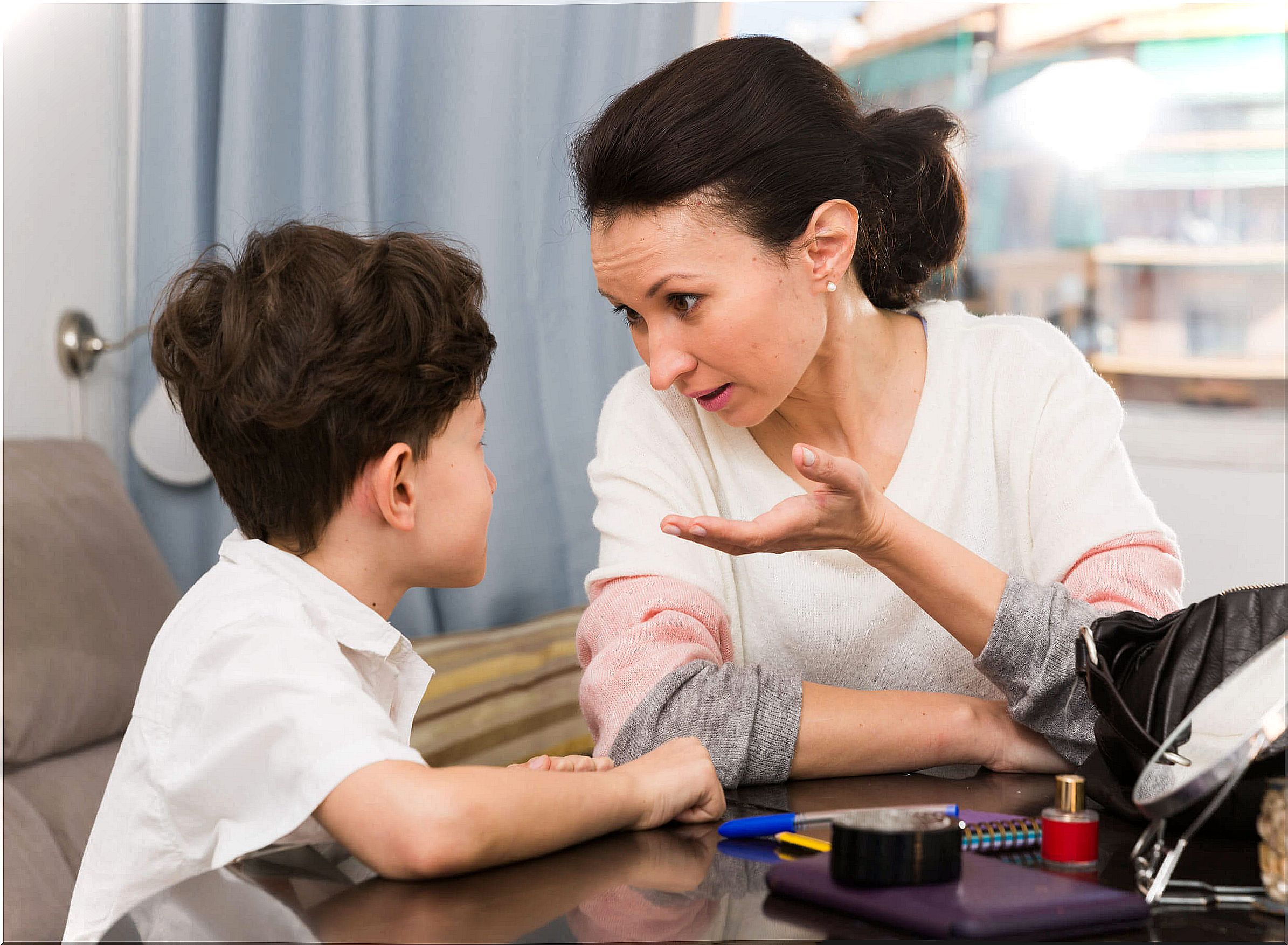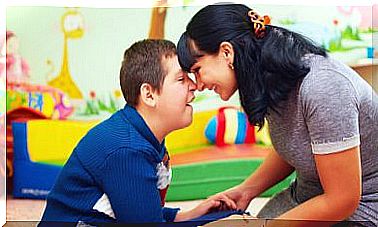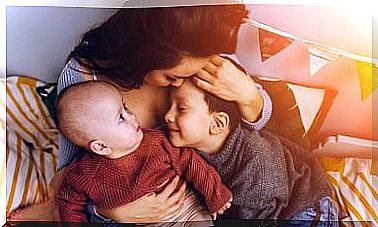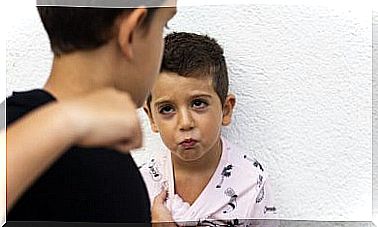Telling The Truth To Children: To What Extent?

The world of adults is much more complex than that of children. It harbors multiple concerns, nuances of feelings and interpersonal problems that it does not seem very appropriate to tell the little ones. They have little or no ability to influence, change or help in these types of situations. However, being aware of them can cause them discomfort. So why tell the truth to children?
The above is what parents who choose not to share with their children when they are sad or worried, when they have had a problem at work or when they have had a fight with a friend, tend to think. However, let us explain why telling children the truth is often the best thing to do.
Why tell the truth to children?

They are highly perceptive
Generally, we tend to hide information from children and omit certain aspects of the day to day in order not to worry them. All parents want their children to grow up happy and calm and see no reason to transfer certain matters to them that are beyond their control. However, children are highly perceptive and easily pick up on the emotions of adults.
Probably, even if you don’t tell your child what is happening, he will realize that something is wrong. You will surely perceive the tense and loaded environment, or the expressions of sadness or disgust that are tried to hide.
Paradoxically, not having information can lead you to imagine different scenarios even worse than reality. And in many cases, you may conclude that it is your fault that your parents are not well. The uncertainty can be more damaging than the truth.
It is the best way to create a bond of trust
One of the main objectives of parents is to establish a relationship of trust with their children, to get them to open up and share their wishes, fears and concerns. However, relationships are two-way and we cannot ask for what we do not offer.
By not telling the truth to the children, we are leaving them on the sidelines, we are creating a wall between them and us. On the contrary, if we share our own emotions and experiences with them, they are more likely to do the same with us.
Encourages the feeling of belonging
Ideally, families should function as a team in which their members support each other. As much the joys as the sorrows or the worries are shared and, in this way, the emotional load that they suppose is lightened.
Listening, understanding and collaboration are some of the pillars that shape the family system, those that allow us to feel that we are part of a group in which we can support ourselves and of which we are an essential part. Hiding the truth from minors prevents them from developing this type of emotional bond and this feeling of team.
How to tell the truth to children?
Although telling children the truth is generally the best thing to do, we can’t do it just anyway. There are painful events such as the illness of a sibling, arguments between parents or financial problems that must be approached with tact. To do this, some important guidelines are the following:

- It is essential to adapt the language to the age of the child so that he can understand the message. The explanation we can give an infant is not the same as an adolescent.
- It is not necessary to go into details, just provide the most relevant information. For example, it is positive to explain to a child that we are sad because we have argued with his father or mother, but he does not have to know the detailed details of that conversation.
- The message has to reduce the burden of responsibility to the little ones. That is, knowing what is happening does not imply that it is their job to solve it. It is important to assure them that we, as adults, will take care of doing whatever is necessary.
Ultimately, honesty is often a better policy than concealment. Although we think that minors will not be able to understand the information, we must try to adapt it to them and transmit it to them. This will lay a foundation of sincerity, trust, and emotional openness that they will likely continue towards us in the future.










